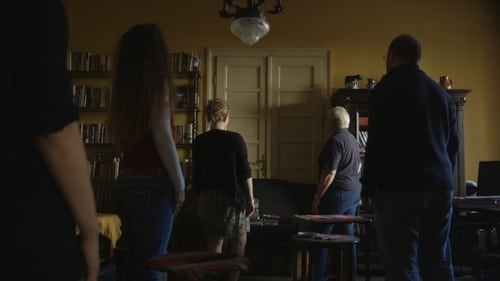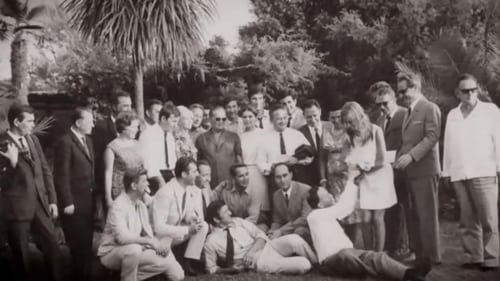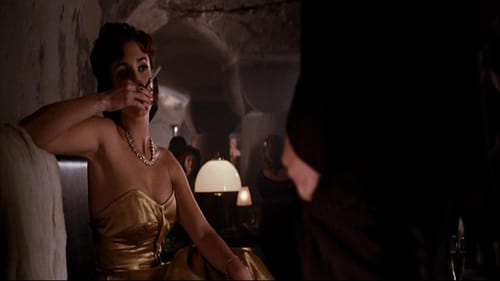Mila Turajlić
출생 : 1979-07-04, Belgrade, Yugoslavia [now Serbia]

Director
During the Cold War it seemed as if there was no other choice than taking the side of the capitalist West or the Soviet Bloc. Yet Yugoslav President Tito sought allies in non-Western countries for an alternative political vision. In 1961, during a founding conference in Belgrade which gathered leaders of 25 countries and 17 liberation movements, the Non-Aligned Movement was officially created. Marking the era by speaking up about decolonization, disarmament, and opposition to racism, this movement is notably absent from Western history books.

Director of Photography
In an unexplored vault in Belgrade, the capital of the former Yugoslavia, lies a collection of films known as “the Labudović Reels.” On them are images of African and Asian liberation movements and revolutionary leaders that defined the era of the 1960s. How is it that the archive of these revolutions lies on another continent, forgotten in a film archive? The answer to this question takes us into the story behind the images, on an intimate voyage with the man who filmed them. As the cameraman of Yugoslav president Tito, Stevan Labudović captured an era of politics, personality and promise, filming the birth of the Non-Aligned Movement. Sent on missions by the President to film liberation wars, he would play a key role in the information battles that defined the era of decolonization. Together with Ciné-Guerillas, this film diptych examines the legacy of these extraordinary archives, seeking to project their political vision forward.

Editor
In an unexplored vault in Belgrade, the capital of the former Yugoslavia, lies a collection of films known as “the Labudović Reels.” On them are images of African and Asian liberation movements and revolutionary leaders that defined the era of the 1960s. How is it that the archive of these revolutions lies on another continent, forgotten in a film archive? The answer to this question takes us into the story behind the images, on an intimate voyage with the man who filmed them. As the cameraman of Yugoslav president Tito, Stevan Labudović captured an era of politics, personality and promise, filming the birth of the Non-Aligned Movement. Sent on missions by the President to film liberation wars, he would play a key role in the information battles that defined the era of decolonization. Together with Ciné-Guerillas, this film diptych examines the legacy of these extraordinary archives, seeking to project their political vision forward.

Producer
In an unexplored vault in Belgrade, the capital of the former Yugoslavia, lies a collection of films known as “the Labudović Reels.” On them are images of African and Asian liberation movements and revolutionary leaders that defined the era of the 1960s. How is it that the archive of these revolutions lies on another continent, forgotten in a film archive? The answer to this question takes us into the story behind the images, on an intimate voyage with the man who filmed them. As the cameraman of Yugoslav president Tito, Stevan Labudović captured an era of politics, personality and promise, filming the birth of the Non-Aligned Movement. Sent on missions by the President to film liberation wars, he would play a key role in the information battles that defined the era of decolonization. Together with Ciné-Guerillas, this film diptych examines the legacy of these extraordinary archives, seeking to project their political vision forward.

Director
In an unexplored vault in Belgrade, the capital of the former Yugoslavia, lies a collection of films known as “the Labudović Reels.” On them are images of African and Asian liberation movements and revolutionary leaders that defined the era of the 1960s. How is it that the archive of these revolutions lies on another continent, forgotten in a film archive? The answer to this question takes us into the story behind the images, on an intimate voyage with the man who filmed them. As the cameraman of Yugoslav president Tito, Stevan Labudović captured an era of politics, personality and promise, filming the birth of the Non-Aligned Movement. Sent on missions by the President to film liberation wars, he would play a key role in the information battles that defined the era of decolonization. Together with Ciné-Guerillas, this film diptych examines the legacy of these extraordinary archives, seeking to project their political vision forward.

Writer
Documentarian Mila Turajlic returns to the Festival with the story of Yugoslavian leader Josip Broz Tito's favourite cameraman, the Algerian War for Independence, and an untold chapter in the history of anti-colonial cinema.

Director
Documentarian Mila Turajlic returns to the Festival with the story of Yugoslavian leader Josip Broz Tito's favourite cameraman, the Algerian War for Independence, and an untold chapter in the history of anti-colonial cinema.

Editor
An archival road trip with Stevan Labudović, cameraman to Yugoslav President Tito and cinematic eye of the Algerian revolution, investigating the role of cinema in the liberation struggles of the Third World and reconstructing the birth of the Non-Aligned Movement.

Producer
An archival road trip with Stevan Labudović, cameraman to Yugoslav President Tito and cinematic eye of the Algerian revolution, investigating the role of cinema in the liberation struggles of the Third World and reconstructing the birth of the Non-Aligned Movement.

Writer
An archival road trip with Stevan Labudović, cameraman to Yugoslav President Tito and cinematic eye of the Algerian revolution, investigating the role of cinema in the liberation struggles of the Third World and reconstructing the birth of the Non-Aligned Movement.

Director
An archival road trip with Stevan Labudović, cameraman to Yugoslav President Tito and cinematic eye of the Algerian revolution, investigating the role of cinema in the liberation struggles of the Third World and reconstructing the birth of the Non-Aligned Movement.

Director
A Serbian mother and daughter transform the domestic drudgery of cleaning the family silver into a reflection on how heirlooms embody their owners' histories. Stories of war, displacement and revolution emerge as the tarnish is polished off, like a genie rubbed out of a lamp, and recollections reconnect them to their relatives through the shared objects that have touched all of their lives.

Director
Three-channel video (black and white and color, three-channel sound) commissioned by the Museum of Modern Art, New York, for the entrance to exhibition "Toward a Concrete Utopia: Architecture in Yugoslavia, 1948–1980".

Director of Photography
For Serbian filmmaker Mila Turajlic, a locked door in her mother's apartment in Belgrade provides the gateway to both her remarkable family history and her country's tumultuous political inheritance.

Herself
For Serbian filmmaker Mila Turajlic, a locked door in her mother's apartment in Belgrade provides the gateway to both her remarkable family history and her country's tumultuous political inheritance.

Writer
For Serbian filmmaker Mila Turajlic, a locked door in her mother's apartment in Belgrade provides the gateway to both her remarkable family history and her country's tumultuous political inheritance.

Director
For Serbian filmmaker Mila Turajlic, a locked door in her mother's apartment in Belgrade provides the gateway to both her remarkable family history and her country's tumultuous political inheritance.

Writer
This eye-opening and bittersweet chronicle of the Yugoslavian film industry recounts how the cinema was used—often with direct intervention from President Josip Broz Tito—to create and recreate the young nation’s history, replete with heroes and myths that didn’t always hew closely to reality.

Director
This eye-opening and bittersweet chronicle of the Yugoslavian film industry recounts how the cinema was used—often with direct intervention from President Josip Broz Tito—to create and recreate the young nation’s history, replete with heroes and myths that didn’t always hew closely to reality.

Third Assistant Director
Still reeling from the painful breakup of his marriage to screen siren Rita Hayworth, filmmaker Orson Welles makes his way to Rome, where he gets pulled into a tangled political plot involving murder and mysterious motives. A beautiful actress proves a tempting distraction. But if they want to stay alive, Welles and his young Italian driver need to stay focused.



















